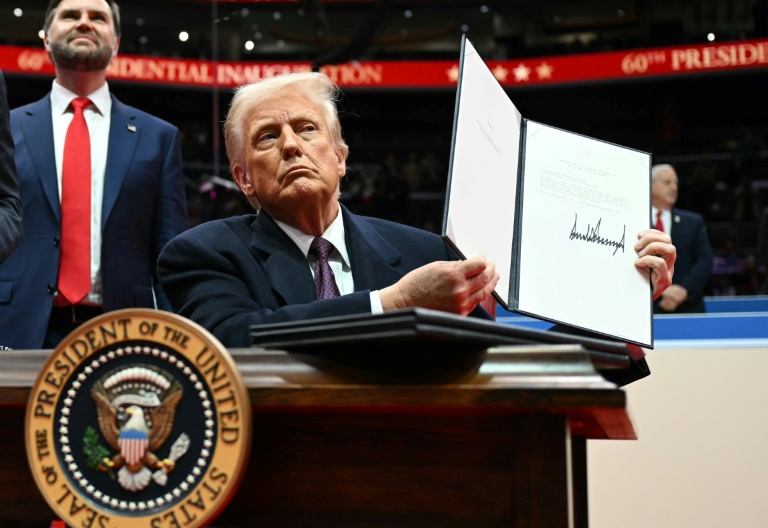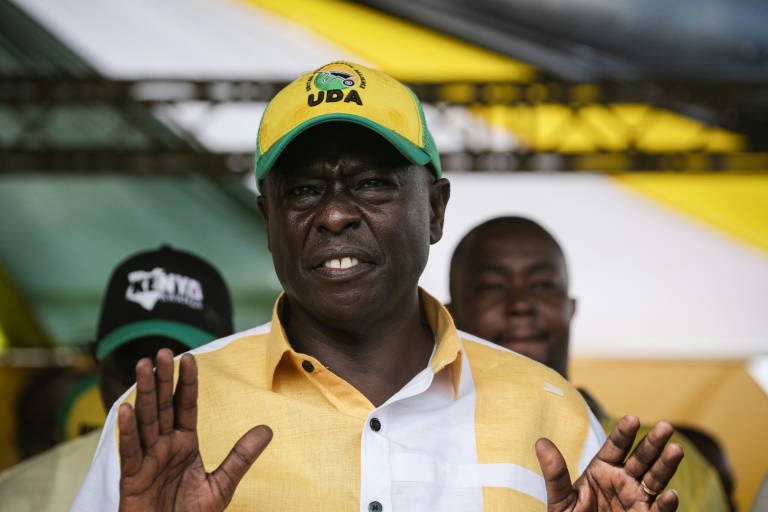After months of disappointment, US President Joe Biden’s administration sees new hope for reaching a Gaza ceasefire after Israel killed Hamas leader Yahya Sinwar, but the upcoming US elections cast a shadow on prospects for a breakthrough.
Biden and Vice President Kamala Harris, who is running in a tight race for the White House against Donald Trump, both described the elimination of Sinwar as an opportunity to end a year of war, with Biden announcing that Secretary of State Antony Blinken will return to the Middle East.
Sinwar, the elusive mastermind of the unprecedented attack on Israel on October 7, 2023 that triggered a relentless Israeli military campaign in Gaza, had been repeatedly described by US and Israeli officials as stubbornly opposed to a Biden plan for a temporary ceasefire in exchange for the release of hostages.
But Prime Minister Benjamin Netanyahu, whose shaky coalition relies on the extreme right, has repeatedly brushed aside pleas from Biden, including his warnings against expanding the conflict to Lebanon, where Israel has been carrying out weeks of air strikes and sent troops across the border aimed at crushing Iran-backed Hezbollah.
Andrew Miller, until recently a senior State Department official dealing with the Israeli-Palestinian conflict, said that Israel could use Sinwar’s death “as a pretext to argue that we have achieved our objectives and it’s time to move in a different direction.”
“I’m not especially optimistic that Prime Minister Netanyahu and his coalition will do this. Another Israeli government might, but they just haven’t, particularly in recent weeks, demonstrated a real interest in this track,” said Miller, now at the left-leaning Center for American Progress.
But he said Sinwar’s killing might change “the public conversation” and deprive Netanyahu of a stated reason for not reaching a deal with Hamas.
A ceasefire deal would be a major win for Harris, who like Biden has promised support for Israel but faces fierce critics in their Democratic Party’s left flank who say the administration has failed to pressure Netanyahu.
Netanyahu’s relationship has been complicated with Trump, but when the Republican was president he enthusiastically supported Israel as it was a popular cause for his own base.
“The election has to have some type of impact on the Israeli calculus,” Miller said.
Blinken, who would be making his 11th trip to the Middle East since the war started, has sought to coax Netanyahu into a Gaza deal in part by dangling the prospect of normalization with Saudi Arabia, which would be a watershed moment in Israel’s acceptance by the Arab and Muslim worlds.
Before October 7, Netanyahu had cast his legacy as building ties with the Arab world, with the United Arab Emirates, Bahrain and Morocco normalizing relations with Israel in 2020.
Dennis Ross, a veteran former US negotiator in the Middle East, expected Biden to highlight Saudi normalization as well as the public offer by the UAE to send troops to a post-war Gaza.
A deal would look to politically eliminate Hamas, which has ruled Gaza since 2007, by excluding the militant group from reconstruction and governance and by shutting down smuggling networks from Egypt into Gaza.
“The point would be, you’re creating an ability to declare success,” Ross said.
Ghaith al-Omari, a former Palestinian Authority advisor who like Ross is now at the Washington Institute, said the new leadership of Hamas would likely be based in Qatar and more prone to “cashing in” on a deal.
“But their ability to actually produce change on the ground is limited,” he said.
“Right now, there is no access to the kind of command and control that Sinwar used to exert on Hamas or on Hamas fighters.”
Since Biden unveiled his ceasefire plan on May 31, Netanyahu has faced loud calls from far-right ministers to resist the pressure and seek a sweeping military solution.
Sina Toossi, a senior fellow at the progressive Center for International Policy, said that Netanyahu has been “seemingly gambling on a Trump victory” by escalating the conflict with expectations of US support.
Netanyahu could be emboldened by Sinwar’s death to adopt a Gaza-like “scorched earth strategy” in Lebanon, where Israel last month killed Hezbollah leader Hassan Nasrallah, Toossi said.
Most pivotal for Netanyahu will be the fate of around 100 remaining hostages in Gaza, dozens of whom are confirmed dead, whose plight has fueled massive pro-ceasefire demonstrations in Israel.
If Netanyahu can now save the surviving hostages, his political standing would soar, but if he fails, his position could worsen dramatically, Toossi said.
“The ball is now in Netanyahu’s court,” he said.
AFP







